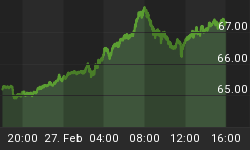Housekeeping note: in case you missed it, here is a link to Tuesday's article, which was not picked up through all of the "usual" syndication channels. Note that, in addition to doggerel, it contains an announcement regarding the free 'office hours' I am making available to readers who wish to sign up. (On the basis of the first "round," I've decided to lengthen the sessions to 20 minutes but only offer three of them per week, but this may evolve further as I learn more.)
.
When we look back on this period of financial history, I wonder if it will not be called the "era of unintended consequences." I can think of lots more names for the era, some of them unprintable, but this one certainly applies.
I tend to think of unregulated markets as chaotic, but fundamentally structured. They tend to be efficient, although research has demonstrated that even completely free markets can produce bubbles and negative bubbles. But I really do believe in something like Adam Smith's 'invisible hand,' that leads the baker to make just enough bread without being told how many loaves to make. A farmer's market or third-world bazaar, although seemingly chaotic, still often manages to arrange itself so that most purveyors of similar goods end up in one general area. However, when someone intervenes to organize the chaos, there is often an unintended consequence. A recent example is the Fed's low-rate policy in the mid-2000s, which was meant to respond to the equity bubble burst and the recession of the early 2000s; it also helped produce the housing bubble. Certainly, the housing bubble was not intended by the Fed, but it clearly followed partly from the easy money policies. As another example, Cyprus needed a bailout partly because their banks had been involved in helping Greece by buying Greek debt. Surely countless other examples suggest themselves.
Another example came to my attention today. As part of a presentation I am giving in a week and a half, I will be talking about the "portfolio balance channel" and how it is pushing investors to take more risk than they should, based on the absolute return expectations, because of the configuration of relative return expectations. (I wrote about this in "A Relatively Good Deal Doesn't Mean It's A Good Deal", back in January). But a friend pointed out that it isn't merely retail and professional investors who are being forced to take risky assets at bad prices because the safe assets have even worse prices: central banks are as well, according to this article in the Financial Times, entitled "Central banks move into riskier assets." Who knew?
Central bankers are not supposed to really care about portfolio returns. They're supposed to care mainly about return of capital rather than return on capital. That's theory, but the reality is that central bankers want to be heroes just like anyone else, and their jobs are definitely made politically easier if they are revenue generators and not cost-centers. And that in turn made me think of the article in this month's Financial Analysts Journal by Robert C. Merton et. al., in which they argue that "monetary and fiscal policies designed to deal with things like stimulus or consumption demand can actually have unintended consequences of some magnitude for financial stability and markets." More interestingly, they graphically illustrate how much more connected financial institutions are now than they were prior to 2008.
And one important unintended consequence of the Fed's efforts on the portfolio balance channel is that the connectedness is increasing, and the nonlinear exposures of central banks are increasing as well. That, in turn, suggests that rather than being meaningfully safer than we were five years ago, we may well be less safe. You could already make such an argument by pointing out that sovereign states have less room to fiscally ease in response to crisis, but add to that the fact that central banks themselves could be caught up in a crisis and be losing capital at just the moment when it is most needed. Of course, at some level a central bank that has control over its own currency - unlike those in, say, Portugal or Italy - can always print a solution. The increasing risk posture of central banks, I believe, increases the possibility of a blatant printing outcome (as opposed to the circumspect printing currently being pursued) in response to a renewed crisis.
Never before have so many fingers been crossed for the global economy. And never before has it been so necessary to cross our fingers!
You can follow me @inflation_guy!
Enduring Investments is a registered investment adviser that specializes in solving inflation-related problems. Fill out the contact form at http://www.EnduringInvestments.com/contact and we will send you our latest Quarterly Inflation Outlook. And if you make sure to put your physical mailing address in the "comment" section of the contact form, we will also send you a copy of Michael Ashton's book "Maestro, My Ass!"















